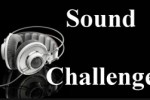Every song or composition must go through four main stages: composition, recording, mixing, and mastering.
After a song has been recorded in a studio the raw files need to be sent for the “mix”. Raw files are all the audio files that contain recordings of your singing or playing without any effects. So once you are done recording you take these files to the mixing table or to a mixing engineer. Mixing can be done using hardware and analog mixing boards but new technology has enabled small-budget studios where mixing is mostly done using a digital mixing console. This is called “in the box” where the box refers a computer with software used for digital mixing.
In the mixing process, the idea is to mix the different tracks which include vocals, instruments or anything else that is used to generate sound and to make them sit perfectly in relation to each other. This is also the part where external effects like reverb or delay can be added. The mixing engineer combines all these tracks to a 2 channel stereo mixer to shape the sound of the band as per their requirement. Besides this, the mixing engineer will also give some dynamic depth, equalize the tracks to balance the sound and may add automating effects, panning etc. After this stage the track will be ready to go for mastering.
Mixing requires a bit of science and a bit of aesthetic – it is something that needs technical know-how and sensibility. This itself creates great value for good mixing engineers. A mixing engineer can charge hundreds or thousands of dollars for mixing a song/album. Their importance can’t be undermined because their part is equally as important as the recording process.
There are many specialized software and hardware options for mixing. These may vary depending on whether you are going the analog or digital route. There are tons of software programs out there (some of which have been around for some time), as well others with an impressive list of add-ons and utilities. You will need to explore some of these before you can pin point what software suits your budget, style, and your comfort.
But is mixing all about learning software technique or knowing how to operate hardware? Image you were a sculptor? Would having the technique, material and tools be all you need to come up with a master piece? Technical expertise is one thing but mixing is also subjective. If you were to record a song and send it to three different engineers, they would all give you a different end result. This is because different genres and different styles need different expertise. The mixing engineer’s version will depend on his listening, his audio equipment, and his experience in your style and genre. Some mixing engineers specialize in one genre such as hip-hop or rock or jazz but others may have experience working with multiple genres. It is important for the mixing engineer to understand the intent of the music and where the artist wants to go with it so that he can bring those aspects out in the mix.






Mixing the music is a hit and trial method at the start. Experts on the other hand, develop an intuition and start to recognize the rhythms to intervals to mix it all. I’m a composer, but to hone my mixing skills, I got ear trained. Ear training really gives you that sense of music, you never had before. You start to listen to the music differently. When I first joined Online Ear Training HQ I had no idea that how would it make my composing and mixing skills better. But it did. One other thing about mixing is the timing that you have to match. There are drums, guitars and other music instruments and all of them following a specific time interval. You have to start the interval of next instrument, when one ends. It is all so tricky in the start, but as you start to get the hang of it, it becomes a source of entertainment and relaxation.